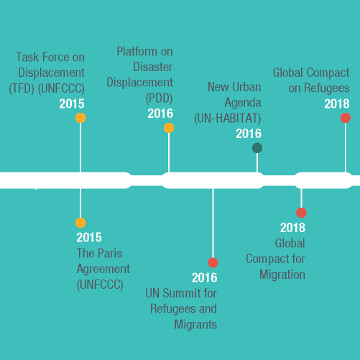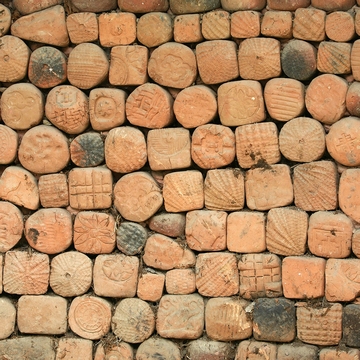An Environmental Humanities Response to the COVID-19 Pandemic
An Open Letter

We greet you in solidarity as scholars, educators, and activists who have dedicated our lives’ work to uncovering the intersections and “intra-actions” of human life with environments of all kinds, and with more-than-human species — vital matters indeed.
And now a virus carries the message of our interbeing — across bodies, species, continents. It has pulled back the veil of smog and car exhaust, the spewing fumes of airplanes and automobiles. It has linked the intersections of deforestation, urbanization, and industrialization with the crowding of wild species into compressed spaces (increasing the likelihood of human-wildlife contact) and virus transmissions. It has uncovered a world more freed — for now — of industrialism, of probing and extracting and dumping. It has uncovered a world of inequalities, gaping divisions which open wide like earthquake faults, creating greater depths of hunger, forced migration, absent or denied care for the planet’s most marginalized inhabitants.
Without the incessant travel of the world’s wealthiest tenth, who consume 187 times more fuel than the poorest tenth, the skies are clear over Los Angeles, New Delhi, Northern Italy, and Ahvaz. The Himalayan peaks are visible from Punjab, India, for the first time in 30 years. Since the 1987 report on “Toxic Waste and Race in the United States,” it’s been well known that poor communities, indigenous communities and communities marginalized by race or ethnicity predominantly live in areas of greatest air pollution. Now a study from Harvard researchers suggests that the chances of contracting and dying from COVID-19 increase significantly due to air pollution, in particular from tiny particles known as PM2.5. Meanwhile stress hormones in whales are dropping, as fewer ships and tests resound undersea. Without the incessant rumble of car traffic, city-dwellers are hearing birdsongs all day. Without the constant surveillance of human visitors, wildlife is becoming more visible in urban spaces – wild boar grazing on vegetation in roadway roundabouts in Haifa, Israel; coyotes traversing the Golden Gate Bridge; and dolphins visible in Istanbul’s Bosphorus and in the silent ports of Sardinia.
What’s left for Environmental Humanities scholars to do? Let’s throw in our environmental scholarship and practice to sustain this reprieve from climate change, and step back from the professional structures enforcing inequalities of class, race, gender, species and nation, starting with ourselves. Let’s commit to limit flying; to limit our driving; to schedule our professional meetings and conferences as much as possible on the internet; to eat ethically, ecologically, and locally sourced foods.
First, let’s start by saying it to ourselves, and to one another. We commit to limit flying. To limit driving. To eating ethically and ecologically. We recommit ourselves to working for social justice, equity, and democracy, both within the human family and in multispecies forms, particularly since the pandemic has and will continue to hit vulnerable and marginalized populations the hardest, reinforcing existing hierarchies.
Only after this recommitment are we inviting our peers, our students, our families and friends to join in this collective Environmental Humanities commitment to slowing climate change with our very life practices – an action wholly congruent with efforts to achieve larger social and structural change.
Limit your flying to conferences. If your articles, presentations, classes, arts and activism mean what you say, this is the moment to show it. The enforced constraints of the present COVID-19 pandemic have revealed to us just how much we can still accomplish without elective travel for physical meetings.
Review your diet. The lives and deaths of most “food” animals in industrialized nations are instrumentalized for human carnivory, variously brutal in their confinements and slaughter – the finger points back at us, if we fund these diets. And there are more ecological choices.
We’ve had the data for decades – from the United Nations’ report on Livestock’s Long Shadow (2006), to the research of Springmann, et. al on the health and climate change benefits of plant-based diets, as well as numerous articles in The Guardian and even Paul Hawken’s Drawdown, which lists plant-rich diets and reduced food waste as the top #3 & #4 of 100 solutions to climate change.
No one listed the Coronavirus in those solutions to climate change. But it’s working to slow human activities – at too high a cost. And it has opened up a moment for actualizing larger social and structural transformations, but whether these changes will promote democracy or dictatorship remains to be seen.
COVID-19 is our opportunity to put our lives – and the lives of the more-than-human world – beside our scholarship. While we continue to work for long-term cultural and economic changes, we recognize the personal is the political – and we commit to limit flying and to review our dietary practices.
These steps are merely a beginning. In the context of the present COVID-19 crisis, this process seems to have chosen us. Not following through on the unexpected nudge we have received from the coronavirus could, in the end, represent an even greater tragedy.
Signed,*
Joni Adamson, Arizona State University, USA
Sinan Akilli, Cappadocia University, Turkey
April Anson, Penn Program for the Environmental Humanities, USA
Karla Armbruster, Webster University, Missouri, USA
Elizabeth Bartlett, University of Minnesota, Duluth, USA
Cynthia Belmont, Northland College, Wisconsin, USA
Kyle Bladow, Northland College, Wisconsin, USA
Robert Boschman, Mount Royal University, Canada
Ron Broglio, Arizona State University, USA
Jeffrey J. Cohen, Arizona State University, USA
Chia-ju Chang, Brooklyn College, City University of New York, USA
Yalan Chang, National Taitung University, Taiwan
Shiuhhuah Serena Chou, Academia Sinica, Taiwan
Om Dwivedi, Auro University, Surat, India
Simon Estok, Sungkyunkwan University, South Korea
John Foran, University of California, Santa Barbara, USA
Greta Gaard, University of Wisconsin-River Falls, USA
Corrie Grosse, College of Saint Benedict and Saint John’s University, Minnesota, USA
Steven Hartman, University of Iceland and The Stefansson Arctic Institute, Iceland
Ken Hiltner, University of California, Santa Barbara, USA
Linda Hogan, poet, novelist and essayist, Colorado, USA
Martin Hultman, Chalmers University of Technology, Sweden
Serenella Iovino, University of North Carolina, Chapel Hill, USA
Tabish Khair, Aarhus University, Denmark
Mark Klapatch, University of Wisconsin-River Falls, USA
Caitríona Ní Dhúill, University College Cork, Ireland
Serpil Oppermann, Cappadocia University, Turkey
Yoriko Otomo, SOAS University of London, UK
David Pellow, University of California, Santa Barbara, USA
Wang Ping, Macalester College, Minnesota, USA
Paul M. Pulé, Chalmers University of Technology, Sweden
Kate Rigby, Bath Spa University, UK
Kurt Seaberg, visual artist, Minneapolis, Minnesota, USA
Rohit Singh, Auro University, Surat, India
Scott Slovic, University of Idaho, USA
Annie Sprinkle, E.A.R.T.H. Lab, University of California, Santa Cruz, USA
Elizabeth Stephens, E.A.R.T.H. Lab, University of California, Santa Cruz, USA
Richard Twine, Edge Hill University, UK
Elisabeth Weber, University of California, Santa Barbara, USA
Sara Pankenier Weld, University of California, Santa Barbara, USA
Laura Wright, Western Carolina University, USA
* To add your name to the list of signatories, visit the dedicated website hosted by the Environmental Humanities Center at Cappadocia University and sign the Environmental Humanities Response to COVID-19 Open Letter.
Download the Environmental Humanities Response to the COVID-19 Pandemic Open Letter




